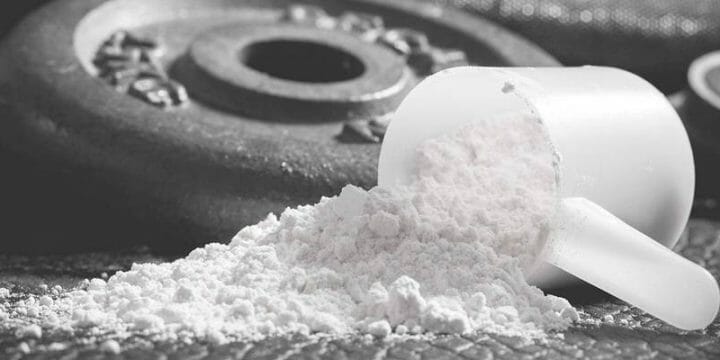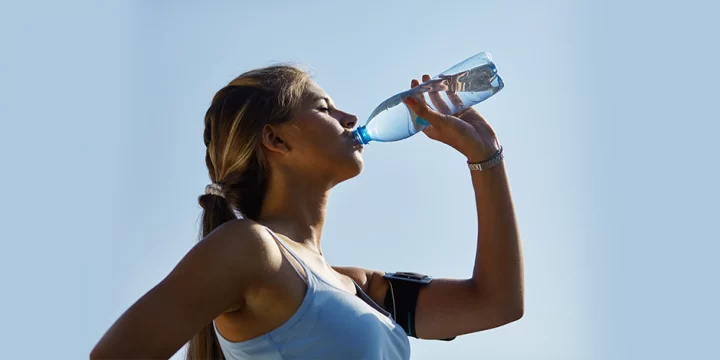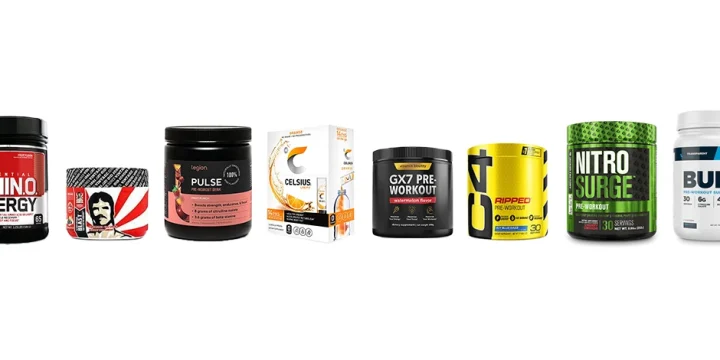I rarely miss a day of drinking pre-workout before training sessions to give my body a jump start, and therefore I often advise my clients to do the same to fuel their workouts.
One of the questions I have heard recently around the gym is whether taking pre-workout without working out is a good idea.
Whenever I drink pre-workout, I exercise, so to answer the question, I spoke with our dietician, I’ve asked my clients, friends, and followers who have done this to give me their honest feedback and I also tested this with a couple of my colleagues from TotalShape.
Read on to find out if you should drink pre-workout outside the gym or not.
Quick Summary
- Drinking pre-workout without engaging in physical exercise can still provide an energy boost and improve focus, similar to the effects of energy drinks.
- Pre-workouts primarily function as stimulants in the body, often containing caffeine ranging from 150-300 mg per serving, equating to about one to three cups of black coffee.
- A study from the National Center for Biotechnology Information (NCBI) reveals that the top reasons for taking pre-workout include increased energy and focus, muscular endurance, and enhanced blood flow.
- In my view, while pre-workout supplements are effective for boosting energy and alertness, they should be used in moderation to avoid side effects like jitteriness or increased heart rate.
How Do Pre-workouts Work in Your Body?

From my experience, pre-workouts act as powerful stimulants. They ramp up my energy levels and sharpen my focus, similar to a strong cup of coffee.
To fully understand how a pre-workout works in your body, you should consider the most common ingredient - caffeine.
On the ingredients label of most pre-workout supplements, caffeine is at the top of the list with a range of 150-300 mg per serving, which equals approximately one to three cups of black coffee.
Caffeine can be great in moderate amounts because it can crank up your central nervous system, improve reaction time, and combat fatigue, but too much can cause anxiety [1].
However, it is crucial to understand your caffeine tolerance when evaluating supplements because stimulant-free pre-workout options are available if this is an issue.
Other Common Ingredients
According to a 2012 article published in BioMed Central (BMC), beta-alanine is also often found in pre-workout supplements because it may lower fatigue and increase high-intensity exercise performance, simply giving you a good workout [2].
Creatine aids in the production of adenosine triphosphate (ATP) in the body, which provides energy for muscles. Many believe it improves strength, increases lean muscle mass, and aids in muscle recovery [3].
Studies published by National Center for Biotechnology Information (NCBI) show when you combine creatine with resistance training, you may gain more strength than with just resistance training itself [4].
Branched-chain amino acids (BCAA) are another common ingredient in pre-workout supplements. BCAA may promote muscle growth, increases lean muscle mass, and reduces muscle damage in high-intensity workouts [5].
Nitric Oxide Boosters like citrulline, arginine, and betaine are ingredients you should look for when choosing a pre-workout supplement because nitric oxide plays a role in relaxing blood vessels and increasing blood flow, giving you increased energy and enhanced workout performance [6].
"[BCAAs] are of interest to those who want to build muscle because of their role in protein synthesis and turnover and energy regulation. BCAAs also play a role in glucose metabolism and immune and brain function."
- Ashley Leone, Sports Dietician
Why Do People Take Them on off Days?

People take pre-workouts on off days because drinking pre-workout without working out still offers a considerable kick start and produces the same effect as drinking energy drinks.
A survey of study participants published by National Center for Biotechnology Information (NCBI) showed the top three goals in taking pre-workout were increased energy and focus, muscular endurance, and blood flow or "pump".
This same study showed that the key ingredients of pre-workout supplements most sought after are caffeine, b-alanine, creatine, vasodilators, branched-chain amino acids, and vitamins [7].
These ingredients are all related to increased alertness, blood flow, and decreased fatigue, which are all benefits users want to experience on their off days as well.
I also noticed some of the benefits of using the pre-workout supplement without working out during our trial phase, and I must say I understand the appeal.
Is It Bad to Take a Pre-workout Supplement and Not Workout?

Based on my own routine, taking pre-workout on non-exercise days is okay if you're careful with the quantity.
The most common side effects include insomnia, increased heart rate, restlessness, and nausea [8].
My colleagues and I replaced our morning coffee intake with the pre-workout supplements for a week and did not perform any exercise afterward.
The effectiveness of the pre-workout supplement on motivation, focus, and alertness was significant, and the side effects were not too problematic.
In the beginning, a few in the group experienced a bit of jitteriness that comes with increased caffeine intake, but with a few dosage adjustments, this issue went away.
FAQs
Is It Bad to Take a Pre-workout Every Day?
It is not bad to take pre-workout every day, but your body could build up a tolerance to some of the ingredients.
Can You Take Pre-workout as an Energy Drink?
You can take pre-workout as an energy drink but keep in mind pre-workouts are specifically designed to improve workout performance by enhancing strength, focus, stamina, and endurance, so forgoing the gym may waste some of these benefits.
Are There Benefits to Taking Pre-workout Outside the Gym?
Yes, there are benefits to taking pre-workout without going to the gym, and these include improved cognitive focus and attention, an energy boost, and increased blood and oxygen flow.
References:
- https://www.webmd.com/anxiety-panic/anxiety-disorders
- https://jissn.biomedcentral.com/articles/10.1186/1550-2783-9-39
- https://www.webmd.com/vitamins-and-supplements/creatine
- https://pubmed.ncbi.nlm.nih.gov/14636102/
- https://www.webmd.com/fitness-exercise/health-benefits-pre-workout-supplements
- https://pubmed.ncbi.nlm.nih.gov/22260513/
- https://www.ncbi.nlm.nih.gov/pmc/articles/PMC6520716/
- https://www.webmd.com/vitamins/ai/ingredientmono-979/caffeine
About The Author
You May Also Like






